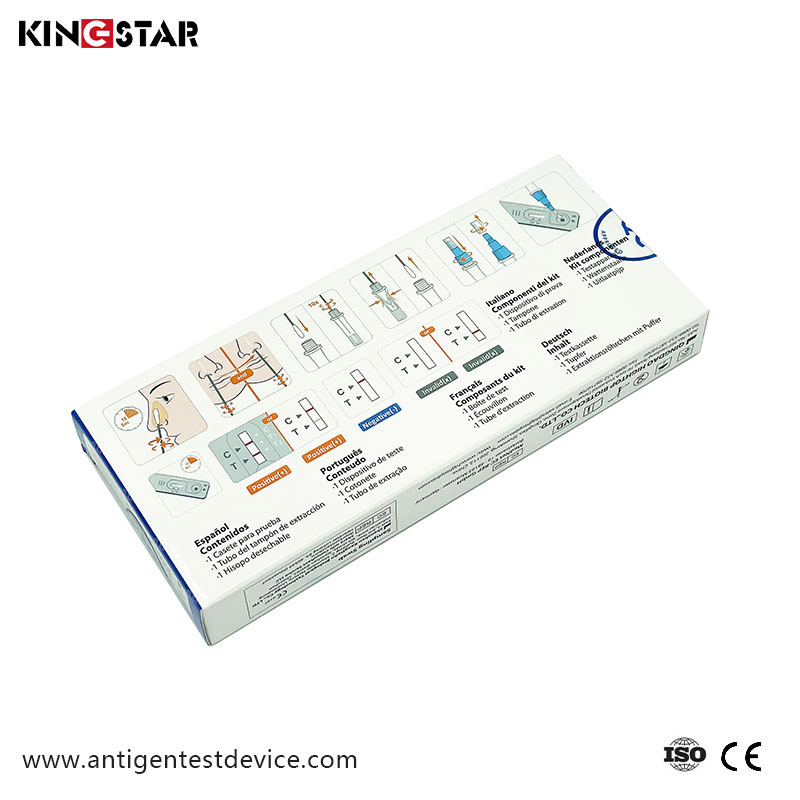What is the difference between nucleic acid testing and Covid-19 Self Test Rapid Antigen Test?
2025-07-14
As two types of virus detection methods, nucleic acid testing and Covid-19 self test rapid antigen test have significant differences in technical principles and application scenarios. Accurate distinction can improve detection efficiency and prevention and control effects.

In terms of technical principles, nucleic acid testing targets viral RNA and amplifies nucleic acid fragments through RT-PCR technology to achieve accurate identification at the gene level, which requires professional laboratory equipment to complete. Covid-19 self test rapid antigen test targets viral surface antigen proteins, uses antigen-antibody reaction to develop color, relies on immunochromatography technologies such as colloidal gold, and does not require complex instruments.
Obvious differences in operation and timeliness. Nucleic acid testing requires professionals to collect nasopharyngeal swabs. After the samples are transported to the laboratory, they undergo extraction, amplification and other steps, and the results are available in 6-24 hours. The cost per person is high. Covid-19 self test rapid antigen test is operated by individuals, and the results are available 15-20 minutes after nasal swab sampling. The test kit is portable and the cost per unit is only 1/5-1/10 of that of nucleic acid testing.
Different accuracy and application scenarios. Nucleic acid testing has extremely high sensitivity and can detect infection in the early stage with an accuracy rate of over 95%. It is the "gold standard" for diagnosis and is suitable for scenarios that require accurate results, such as case diagnosis and entry quarantine. The accuracy of Covid-19 self test rapid antigen test is about 80%-90% when the viral load is high (3-7 days after onset), and there are false negatives. It is more suitable for home screening and community rapid screening to quickly lock in potential infected persons.
The effectiveness of the results is different from the value of prevention and control. A positive nucleic acid test can be directly diagnosed as a basis for isolation and treatment; a positive self-test antigen test requires nucleic acid re-examination and confirmation, and a negative test cannot completely rule out infection. It needs to be judged in combination with symptoms and exposure history. The former is the core basis for precise prevention and control, and the latter is an efficient tool for large-scale screening. The two can work together to optimize the prevention and control process.
In actual applications, nucleic acid testing ensures diagnostic accuracy, and Covid-19 self test rapid antigen test improves screening efficiency. On-demand selection can take into account both accuracy and timeliness, providing scientific support for epidemic prevention and control and personal health management.



